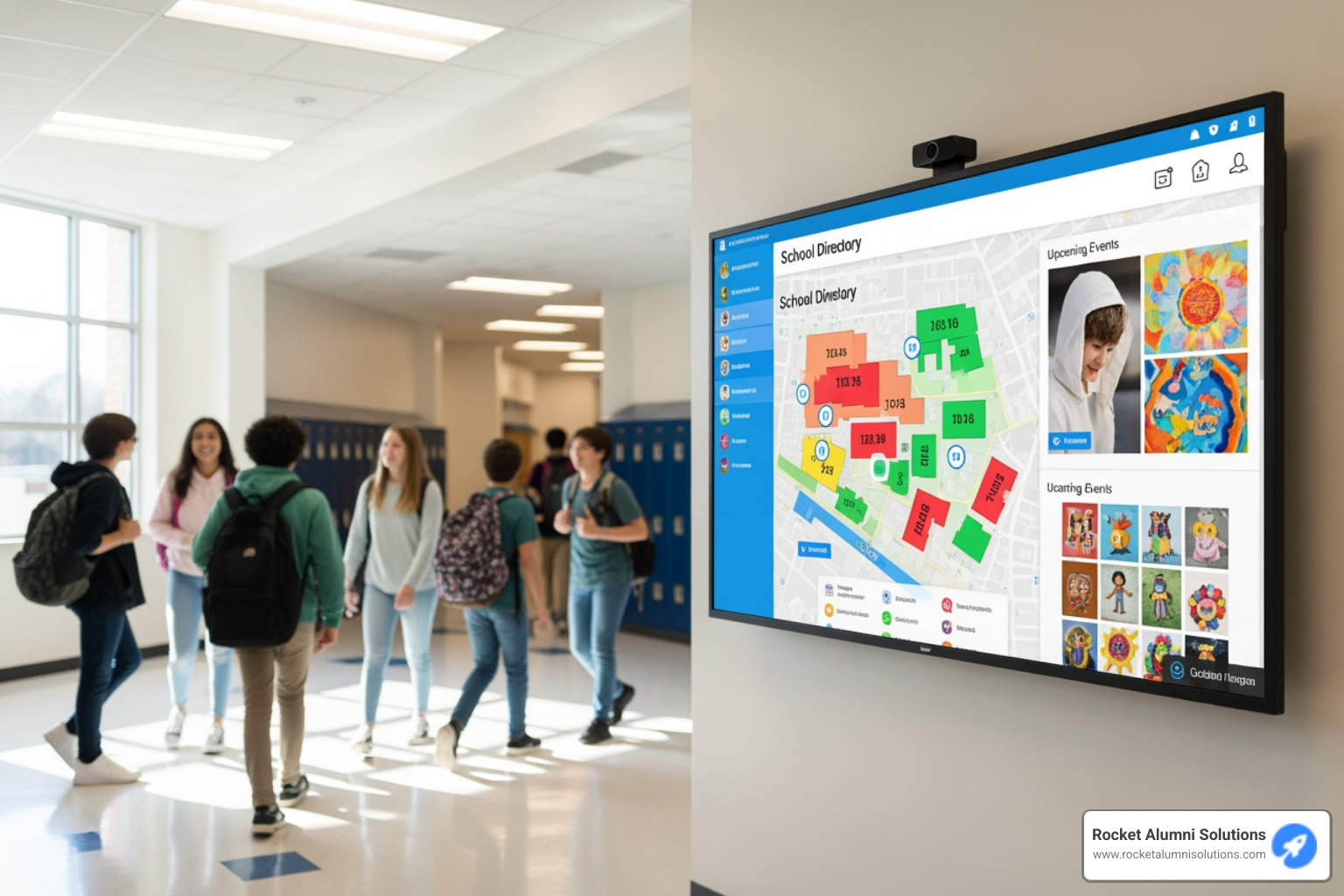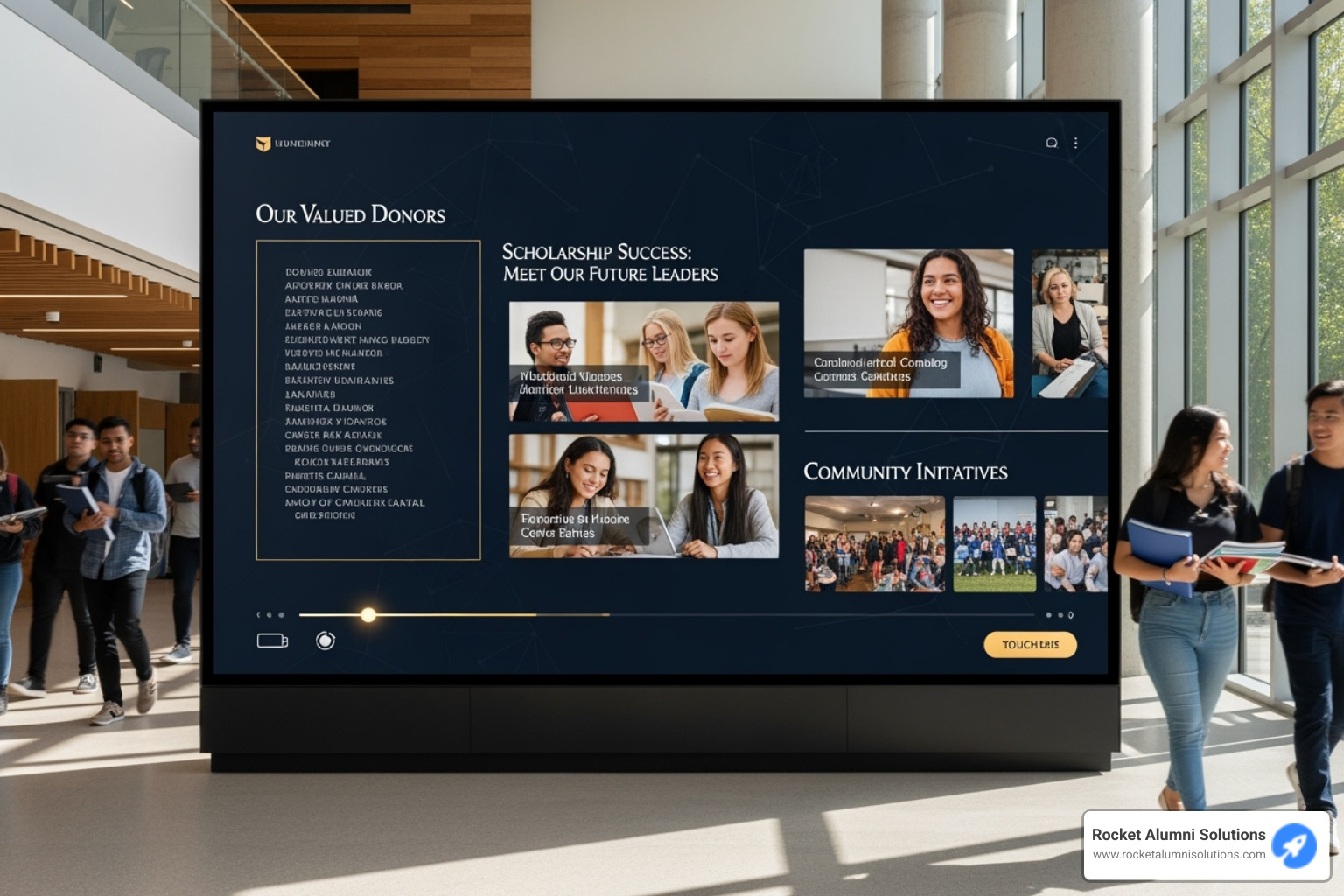Why Event Technology Solutions Are Changing Modern Events
Event technology solutions are revolutionizing how organizers plan, execute, and measure event success. The event technology market is projected to reach $115.2 billion by 2027, growing at a CAGR of 12.5%, driven by the surge in hybrid events expected to grow 400% between 2022 and 2024.
Core Event Technology Solutions:
- Registration & Ticketing Systems - Streamline attendee sign-ups and payments
- Mobile Event Apps - Provide personalized schedules and real-time updates
- Virtual Event Platforms - Enable remote participation and hybrid experiences
- Analytics & Reporting Tools - Measure engagement and calculate ROI
- Networking Technology - Facilitate connections through AI matchmaking
- Interactive Display Solutions - Create engaging onsite experiences
Event technology solutions encompass the digital tools and platforms that streamline the entire event lifecycle - from initial planning and registration to live execution and post-event analysis. These solutions can increase attendee engagement by up to 30% while reducing event costs by up to 20%.
The shift toward hybrid and virtual formats has made technology essential rather than optional. Over 70% of event organizers now rely on event technology to manage their events, with mobile event apps seeing a 50% increase in usage over the past two years.
I'm Chase McKee, Founder & CEO of Rocket Alumni Solutions, where we've helped organizations create memorable experiences through interactive touchscreen technology. My experience building event technology solutions to $3M+ ARR has shown me how the right technology transforms events from simple gatherings into powerful engagement platforms.
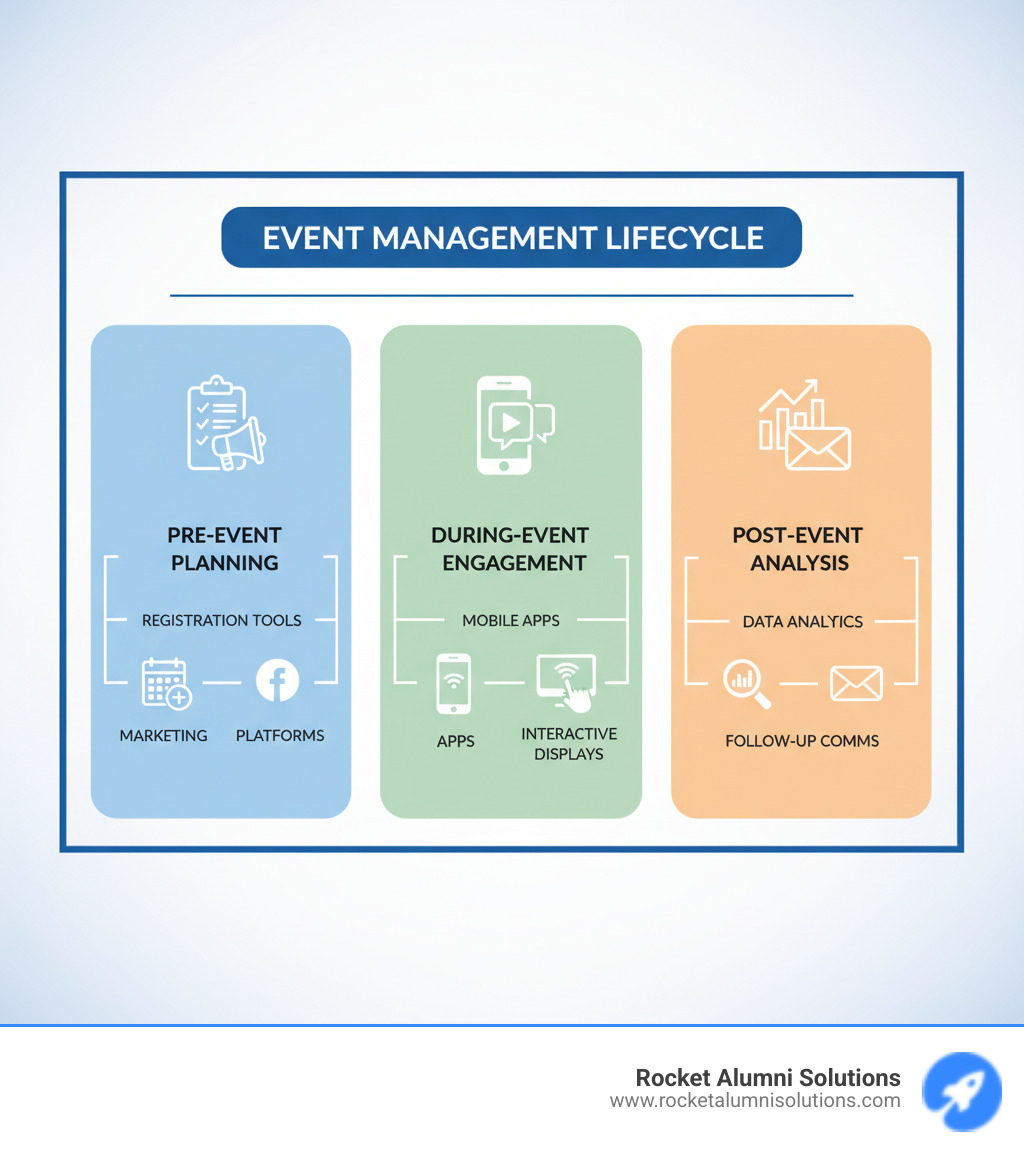
Event technology solutions terms to remember:
Think of event technology solutions as the command center for your entire event. These all-in-one platforms become the beating heart of your operation, bringing together everything from registration to post-event analysis under one digital roof.
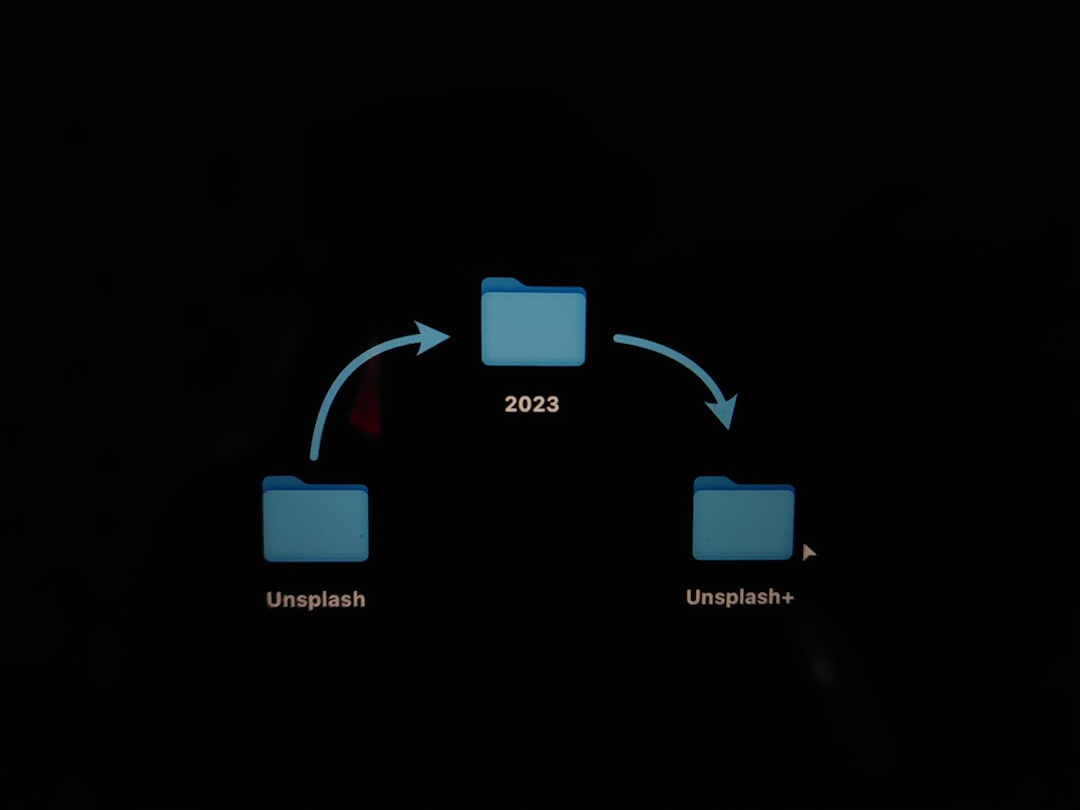
The beauty of a centralized platform lies in its ability to automate workflows that used to eat up hours of your time. Instead of juggling multiple spreadsheets, email lists, and payment systems, you get seamless data flow between every part of your event. This means less time wrestling with admin tasks and more time creating memorable experiences.
Whether you're planning an intimate workshop or a massive conference, these platforms scale with your needs. Every piece of information flows into a single dashboard where you can see the big picture at a glance. No more hunting through different systems to find what you need.
Essential Pre-Event Features
The real magic happens before your event even begins. Modern event technology solutions handle the heavy lifting with intuitive event website builders that let you create professional, branded sites without any coding knowledge. Your attendees get a polished experience that reflects your organization's style.
Online registration forms with custom fields capture exactly the information you need, while secure ticketing systems handle payments and even reserved seating arrangements. Gone are the days of manual ticket tracking and payment processing headaches.
Automated email marketing keeps your attendees engaged and informed without you lifting a finger. These systems send personalized welcome messages, event reminders, and updates based on attendee preferences. Tools that help streamline event planning become essential partners in creating smooth experiences.
Agenda creation tools let you build detailed schedules, assign speakers, and manage session content all in one place. When you need to make last-minute changes, they update instantly across all platforms. Your attendees always have the latest information at their fingertips.
Post-Event Analysis and Reporting
Your event doesn't end when the last person leaves. That's when the real learning begins. Attendee feedback surveys deployed through your platform capture insights while the experience is still fresh in people's minds. This feedback becomes gold for planning future events.
Data analytics dashboards turn all those interactions into meaningful insights. You can see which sessions were most popular, track engagement levels, and calculate your event's ROI with real numbers instead of guesswork. The fact that 60% of organizers use data analytics shows how crucial this has become for event success.
These platforms track every touchpoint, from registration clicks to session attendance. This deep knowledge helps you understand what worked, what didn't, and what your attendees really want. Your sales teams get actionable data they can actually use, turning your events into lead generation powerhouses.
Post-event communication flows naturally through the same system, helping you maintain relationships and plan follow-up activities. Everything connects, creating a complete picture of your event's impact and success.
The magic of any successful event happens when attendees become active participants rather than passive observers. Event technology solutions are changing this experience, boosting attendee engagement by up to 30% through creative tools that turn ordinary moments into memorable interactions.
Think about the last event you attended. What made it stick in your memory? Chances are, it wasn't just sitting and listening - it was the moments when you felt connected, engaged, or genuinely surprised. That's exactly what modern event technology aims to create.
Gamification features add a playful competitive element that gets people moving and interacting. Whether it's earning points for visiting exhibitor booths or competing in live trivia during breaks, these elements inject energy into any gathering. Interactive content goes beyond traditional presentations, allowing attendees to participate in real-time polls, submit questions instantly, or explore information at their own pace.
The power of interactive displays really shines here. These aren't just fancy screens - they're conversation starters, information hubs, and engagement magnets all rolled into one.
Mobile Event Apps: The Digital Companion
Mobile event apps have become as essential as your conference badge. With usage jumping 50% over the past two years, these digital companions are clearly meeting a real need for attendees who want more control over their event experience.
Personalized schedules let each attendee create their own custom agenda, marking must-see sessions and setting reminders. No more frantically flipping through printed programs or missing that keynote you've been excited about for months.
Push notifications keep everyone in the loop with real-time updates. Speaker running late? Venue change? Surprise networking happy hour? Your app delivers the news instantly, ensuring nobody misses out on last-minute opportunities.
Interactive venue maps solve the age-old problem of getting lost in convention centers. These digital guides help attendees steer complex venues, find specific booths, and find areas they might have otherwise missed.
Live polling and Q&A features transform traditional one-way presentations into dynamic conversations. Attendees can submit questions anonymously, vote on topics they want discussed, and see real-time feedback from the entire audience. Tools like touchscreen event timeline planning make it even easier to keep everyone synchronized and engaged throughout the event.
Fostering Connections with Networking Technology
Let's face it - networking can feel awkward. Standing around with a drink, trying to make small talk with strangers, hoping you'll meet someone relevant to your work or interests. Networking technology takes the guesswork out of these crucial connections.
AI-powered matchmaking analyzes attendee profiles, interests, and goals to suggest meaningful connections. Instead of random encounters, you're introduced to people who share your professional interests or could genuinely help advance your projects.
1-on-1 meeting schedulers eliminate the back-and-forth emails trying to coordinate busy schedules. The system handles availability, suggests meeting times, and even assigns locations - whether that's a quiet corner of the venue or a virtual meeting room.
Digital business card exchange modernizes the traditional card swap. A simple tap or QR code scan shares contact information instantly, with details automatically saved to both parties' phones. No more lost cards or illegible handwriting.
Social walls and virtual networking lounges create spaces for broader community interaction. Attendees can share insights, ask questions, and continue conversations that started during formal sessions. EventSync Touchscreen: Effortless Scheduling makes coordinating these interactions smooth and stress-free for both organizers and attendees.
Interactive Onsite Event Technology Solutions
When attendees are physically present, interactive onsite event technology solutions create those "wow" moments that people talk about long after the event ends. These tools transform static spaces into dynamic engagement zones that draw people in and encourage exploration.
Interactive touchscreen solutions for events and digital event displays turn blank walls and empty corners into information hubs and entertainment centers. Attendees can explore exhibitor information, browse session details, or dive deep into topics that interest them most.
Interactive kiosks serve as self-service help desks, allowing attendees to find answers to common questions, print materials, or access additional resources without waiting in line for assistance.
Digital photo booths create instant memories while generating social media buzz. These modern versions offer custom backgrounds, branded frames, and immediate sharing options that extend your event's reach far beyond the venue walls.
For truly collaborative experiences, a touchscreen event interactive table brings people together around shared activities. Whether it's exploring a product demo, working through a group exercise, or simply browsing event highlights, these tables naturally encourage interaction and conversation.
These technologies do more than just impress - they provide valuable data on attendee preferences and behavior patterns that help you improve future events.
Today's events come in all shapes and sizes, and the best event technology solutions need to handle whatever format you throw at them. Whether you're planning an intimate in-person workshop, a massive virtual conference, or the increasingly popular hybrid experience, technology is what makes it all work seamlessly.
The numbers tell the story - hybrid events are exploding with a projected 400% growth between 2022 and 2024. That's not just a trend; it's a complete shift in how we think about bringing people together.
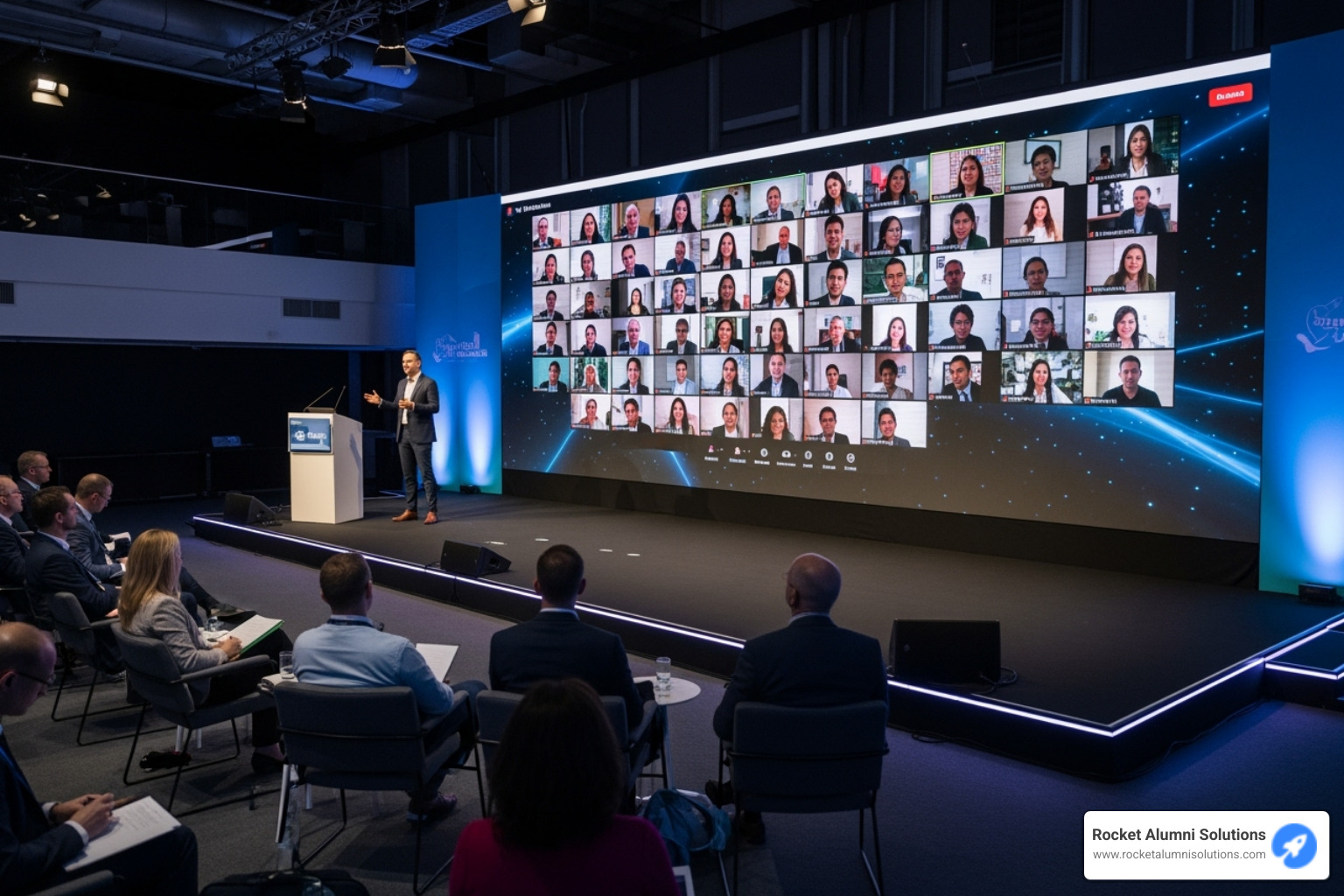
What makes hybrid events so compelling is their ability to bridge physical and digital audiences into one cohesive experience. Your in-person attendees shouldn't feel like they're getting a completely different event than your virtual participants. The magic happens when technology creates that unified experience where everyone feels equally included and engaged.
The challenge isn't just picking the right tools - it's making sure they all work together to create something greater than the sum of their parts. When done right, attendees forget about the technology and focus on the content and connections that matter most.
Onsite Technology for In-Person Gatherings
In-person events have their own special technology needs, and it's all about making things smooth and secure. Contactless check-in has become the gold standard - nobody wants to wait in long lines anymore when a simple QR code scan can get them through the door in seconds.
On-demand badge printing ensures everyone gets exactly what they need, when they need it. No more pre-printed badges with typos or last-minute attendee changes causing headaches. The system prints fresh, accurate badges on the spot.
For exhibitors, lead capture devices integrated right into your event app eliminate those clunky handheld scanners. A simple badge scan or business card exchange through the app means no more lost leads or illegible handwritten notes.
RFID or NFC technology takes things to the next level for session tracking and access control. You get valuable data about which sessions are most popular and how attendees move through your event space. This information is gold for planning future events.
Of course, with all this digital connectivity comes responsibility. It's crucial to stay aware of tech security vulnerabilities to keep your attendee data safe and secure.
Powering Virtual and Hybrid Experiences
Virtual and hybrid events demand a completely different technological approach. High-quality livestreaming platforms are absolutely non-negotiable - poor audio or pixelated video will kill engagement faster than anything else.
Branded virtual venues help create that immersive feeling even when attendees are sitting in their home offices. These digital spaces should reflect your event's personality and make remote participants feel like they're truly "there."
Interactive breakout rooms are where the magic of virtual networking happens. They recreate those spontaneous hallway conversations that make in-person events so valuable. People can duck into smaller groups, have focused discussions, and build real connections.
On-demand content hubs extend your event's value far beyond the live experience. Attendees can catch up on sessions they missed, revisit key presentations, and access resources weeks or months later.
Virtual exhibit halls give sponsors and exhibitors a digital space to showcase their offerings. The best ones feel interactive and engaging, not like browsing a static website.
Managing all these moving parts requires sophisticated scheduling tools. That's where solutions like cloud-based interactive calendar solutions become invaluable for keeping everyone - whether they're in the room or across the world - perfectly synchronized and informed.
The Future of Event Technology Solutions and Maximizing ROI
Looking ahead, event technology solutions are evolving at a breathtaking pace. We're standing at the edge of a technological revolution that promises to transform how we think about events entirely. The event technology market isn't slowing down – it's projected to reach $115.2 billion by 2027, and frankly, that growth makes perfect sense when you see what's coming.
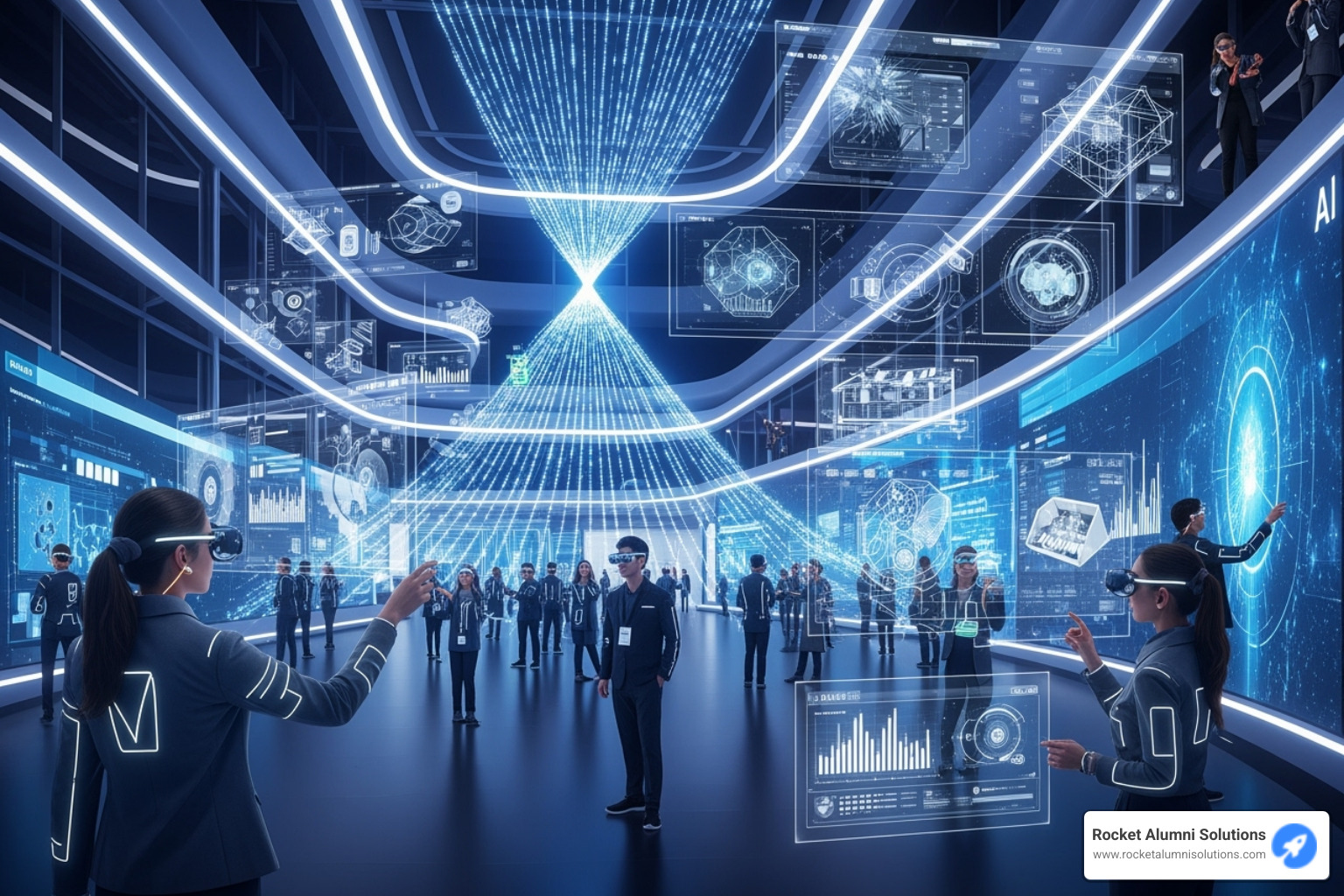
The future is all about artificial intelligence that actually thinks, Metaverse experiences that blur the line between virtual and reality, and sustainability tech that helps us create amazing events without harming our planet. But here's what excites me most: these aren't just cool gadgets. They're tools that enable true data-driven decision making and help us prove the real value of every event we create.
As someone who's built event technology solutions from the ground up, I can tell you that the most successful events of tomorrow will be those that seamlessly blend cutting-edge innovation with genuine human connection. That's where the magic happens.
The Growing Role of AI and Data Analytics
Artificial intelligence isn't science fiction anymore – it's reshaping events right now. The numbers don't lie: AI in event tech is growing by 35% annually, and once you see what it can do, you'll understand why.
Predictive analytics are changing how we plan events. Instead of guessing how many people might show up, AI analyzes historical data, weather patterns, competing events, and dozens of other factors to give us accurate attendance forecasts. This means we can optimize everything from catering orders to room sizes before anyone even registers.
Personalized content recommendations powered by AI ensure every attendee gets exactly what they're looking for. The system learns from their behavior – which sessions they attend, what exhibitors they visit, even how long they spend reading certain content – and suggests relevant connections and sessions. It's like having a personal concierge for each of your thousand attendees.
Conversational AI chatbots have become incredibly sophisticated. They handle everything from "Where's the bathroom?" to complex scheduling questions, freeing up our human staff to focus on creating memorable experiences. The best part? These chatbots get smarter throughout the event, learning from every interaction.
But the real power lies in behavioral tracking insights. AI doesn't just tell us what happened – it reveals why it happened. We can see attendee journey patterns, identify engagement hotspots, and even predict which networking connections are most likely to result in business deals. This level of insight transforms events from one-time gatherings into strategic business tools.
Measuring Success: How Technology Boosts Event ROI
Here's where event technology solutions really prove their worth – in cold, hard numbers that make CFOs smile. The ROI improvements we're seeing aren't just impressive; they're game-changing.
Lead generation increases by up to 40% when we implement comprehensive event technology. Digital business card exchanges, AI-powered matchmaking, and integrated CRM systems capture every meaningful interaction. No more lost business cards or forgotten conversations – every connection is tracked, tagged, and ready for follow-up.
This translates directly into improved sponsorship value. When we can show sponsors exactly how many qualified leads they generated, which sessions drove the most engagement, and how their brand was perceived, renewal conversations become much easier. We're not selling hope; we're selling measurable results.
Event costs drop by up to 20% through intelligent automation and resource optimization. AI helps us right-size everything from staffing levels to catering quantities. Automated workflows eliminate manual tasks that used to eat up hours of expensive labor. Digital solutions reduce printing, shipping, and storage costs.
Attendee retention improves dramatically when we use technology to create personalized experiences. People return to events where they felt valued, connected, and engaged. The data we collect helps us understand what worked and what didn't, so each event gets better than the last.
For organizations with specific needs, like nonprofits managing multiple events throughout the year, tools like smart calendar tools for nonprofits help maximize every dollar spent while creating lasting impact.
The bottom line? Event technology solutions don't just make events more engaging – they make them more profitable, more efficient, and more valuable to everyone involved. When you can prove that your event generated real business results, suddenly everyone wants to attend your next one.
Frequently Asked Questions about Event Technology
What are the critical features to look for in event technology solutions?
Choosing the right event technology solutions can feel overwhelming with so many options available. After helping countless organizations create memorable experiences, I've learned that certain features make all the difference between a good event and a great one.
Registration and ticketing systems form the foundation of any solid platform. You need smooth attendee onboarding that doesn't create frustration before your event even begins. Look for systems that handle everything from basic sign-ups to complex pricing tiers and group registrations.
Mobile app functionality has become absolutely essential. Your attendees expect personalized schedules, real-time updates, and the ability to connect with others right from their phones. The best platforms make this feel effortless rather than clunky.
Don't overlook networking tools - they're what transform your event from a series of presentations into a community-building experience. AI matchmaking and easy meeting schedulers help attendees make meaningful connections without the awkward small talk struggles.
Analytics and reporting capabilities separate professional organizers from the rest. You need comprehensive data to prove your event's value and improve future experiences. The best platforms track everything from attendance patterns to engagement levels.
Integration capabilities with your existing tools prevent the headache of managing multiple disconnected systems. Whether it's your CRM, marketing automation, or other platforms, seamless data flow is crucial.
Finally, security measures and reliable support protect both your data and your sanity. When things go wrong (and they sometimes do), having a responsive technical team can save your event.
Integration challenges keep many event organizers up at night, but they don't have to. The key is planning ahead and asking the right questions before you commit to any platform.
You'll face a choice between all-in-one platforms and a best-of-breed approach using specialized tools. All-in-one solutions offer simplicity but might lack specific features you need. Best-of-breed gives you more flexibility but requires careful integration planning.
If you go the specialized route, API access becomes your best friend. These technical connections allow different systems to share data automatically. Don't worry about understanding the technical details - just make sure your chosen platforms can "talk" to each other.
Vetting provider integration support before you sign contracts saves countless headaches later. Ask about existing integrations, custom connection capabilities, and how much technical help they provide during setup.
Dedicated technical support teams from your providers make integration much smoother. As the National Association of Realtors emphasizes, working with teams that prioritize "seamless implementation" transforms what could be a stressful process into a manageable one.
The goal is creating a system where data flows effortlessly from registration through lead capture to post-event analytics, without you having to manually transfer information between platforms.
How does technology help solve common event planning challenges?
Event planning comes with predictable challenges, but event technology solutions turn most of these pain points into manageable tasks - sometimes even competitive advantages.
Budget management becomes much easier when technology automates time-consuming manual tasks. Instead of paying staff to handle registration paperwork or manually track attendance, platforms handle these automatically. This efficiency can reduce your overall event costs by up to 20%, freeing up budget for the experiences that really matter.
Attendee engagement used to rely on hoping your speakers were charismatic enough to hold attention. Now, mobile apps, interactive displays, and networking tools boost participation by up to 30%. Your attendees become active participants rather than passive observers.
Logistical complexity shrinks dramatically with centralized platforms managing everything from registration to session scheduling to venue navigation. Instead of juggling multiple spreadsheets and hoping nothing falls through the cracks, you have one dashboard showing your entire event status.
Proving ROI transforms from guesswork to data-driven reporting. Integrated analytics track leads, conversions, and attendee behavior patterns, giving you concrete numbers to show stakeholders. This makes securing budgets for future events much easier.
Data collection and post-event follow-up happen automatically rather than requiring weeks of manual work. Targeted communications based on actual attendee behavior replace generic "thanks for attending" emails, creating stronger relationships and better outcomes for everyone involved.
Every challenge becomes an opportunity to create better experiences while working more efficiently.
Conclusion
After diving deep into event technology solutions, one thing becomes crystal clear: these tools have evolved from nice-to-have extras into absolutely essential components of successful events. Whether you're planning an intimate workshop or a massive conference, technology is what transforms good events into unforgettable experiences.
The numbers speak for themselves. We've seen how the right tech stack can boost attendee engagement by 30% while cutting event costs by 20%. More importantly, these solutions provide the measurable ROI that helps justify our event budgets and prove value to stakeholders.
From those core management platforms that keep everything organized in one place, to the interactive displays that make attendees stop and engage, to the AI-powered networking tools that help people make meaningful connections - each piece of your technology puzzle plays a vital role. The key is choosing solutions that work together seamlessly, creating that unified experience we all strive for.
Looking ahead, the future is even more exciting. With AI becoming smarter and the metaverse opening new possibilities, we're just scratching the surface of what's possible. But remember, the best technology is the one that serves your specific needs and audience.
For specialized events like celebrating achievements at an awards banquet, solutions like digital award showcases can create truly memorable experiences. At Rocket Alumni Solutions, we've built our reputation on creating customizable, tech-free media content that puts the spotlight exactly where it belongs. Our animated flip books, digital yearbooks, and social media integration tools ensure every success story gets the recognition it deserves.
Ready to see how technology can transform your next event? Whether you're planning a graduation ceremony, sports banquet, or recognition event, explore our digital awards showcase to find how you can create lasting impressions that attendees will talk about long after the event ends.
The future of events is here, and it's more connected, engaging, and impactful than ever before.


















































































































